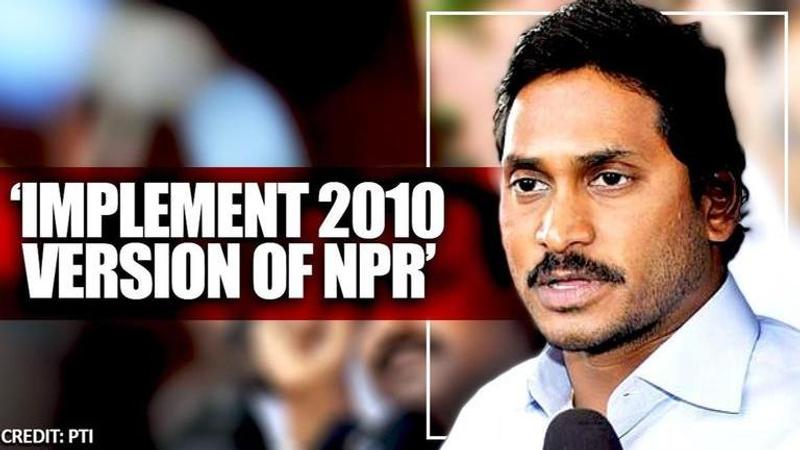Published 21:50 IST, March 3rd 2020
Andhra Pradesh govt requests Central govt to revert to 2010 version of NPR
In a tweet on Tuesday evening, Chief Minister Jagan Mohan Reddy stated that the State Assembly will be passing a resolution to prevent the implementation of NPR

Andhra Pradesh Chief Minister Jagan Mohan Reddy, on Tuesday, announced that the State government has requested the Union Government to reverse the proposed National Population Register (NPR) to the 2010 version.
AP asks for older version of NPR
In a tweet on Tuesday afternoon, CM Reddy stated that the minorities in his state were feeling insecure because of the new version of the Bill and that his party had decided to send the request to the Central government after elaborate discussions. He went on to add that the resolution in this regard will be passed soon in the State Assembly.
Andhra Pradesh is not the only state to want the 2010 version of the NPR implemented. Last week, the Bihar State government (an ally of the BJP in the Centre) also passed a resolution preventing the implementation of NPR in the state.
Until now, Bihar, Kerala, West Bengal, Rajasthan, Punjab, Madhya Pradesh and Puducherry have passed resolutions to prevent implementation of the Citizenship Amendment Act (CAA). The Budget session of Telangana Assembly will begin on March 6 and the Assembly is expected to pass a resolution blocking the CAA.
On Sunday, March 1, Maharashtra Deputy Chief Minister Ajit Pawar stated that the state assembly need not pass a resolution against the Citizenship Amendment Act (CAA), National Register of Citizen (NRC) and National Population Register (NPR) as there is nothing to fear about it.
What is CAA?
The CAA seeks to provide citizenship to the minority communities namely Hindus, Sikhs, Buddhists, Jains, Parsis and Christians from Afghanistan, Bangladesh and Pakistan. This will be applicable to the members of these communities having arrived in India on or before December 31, 2014. Moreover, they will not be considered as illegal migrants. Additionally, the mandatory residence period for naturalised citizenship for these communities has been reduced to five years. The Opposition contends that the Act discriminates on the basis of religion.
Updated 21:50 IST, March 3rd 2020




